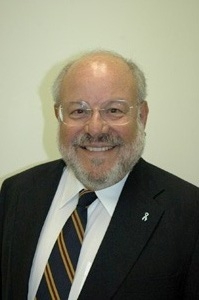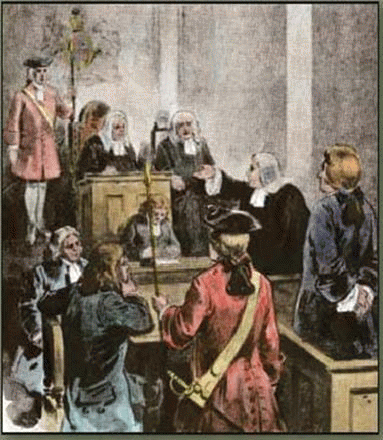p>This week marks the 280th anniversary of a landmark event in the history of a free press: the trial of John Peter Zenger in New York. Zenger, publisher of the New-York Weekly Journal, was found not guilty of seditious libel by a 12-member jury at a two-day trial that began on August 4, 1735.
The charge was brought by a tyrannical colonial governor of New York, William Cosby, who accused Zenger of printing "false, scandalous, malicious and seditious" articles. The New York-Weekly Journal had been going after the governor, exposing his shady machinations.
Zenger, who had been jailed for nine months, was represented by Andrew Hamilton, considered the foremost lawyer in the colonies. Hamilton took the case pro bono, riding to the rescue from Pennsylvania where he had been former attorney-general.
Hamilton confounded the prosecution by admitting that Zenger had published the offending material, but he took the position that what was involved was the truth. Chief Justice James Delancey, a Cosby henchman, didn't agree with the defense of truth.
But Hamilton's response was that: "Leaving it to judgement of the court whether the words are libelous or not in effect renders juries useless."
On August 5, Hamilton addressed the jury in an eloquent, brilliant summation--parts of which as a journalism professor I read to my students every semester.
Hamilton spoke about how it was "my duty, if required, to go to the utmost part of the land where my services could be of any use in assisting to quench the flames of prosecutions upon informations set on foot by the government, to deprive a people of the right of remonstrating and complaining, too, of the arbitrary attempts of men in power."
He said: "Men who injure and oppress the people under their administration provoke them to cry out and complain, and then make that very complaint the foundation for new oppressions and prosecutions."
Hamilton declared: "The question before the court and you, gentlemen of the jury, is not of small or private concern. It is not the cause of one poor printer, nor of New York alone, which you are now trying. No! It may in its consequence affect every free man that lives under a British government on the main of America."
"It is the best cause. It is the cause of liberty," Hamilton continued. "And I make no doubt but your upright conduct this day will not only entitle you to the love and esteem of your fellow citizens, but every man who prefers freedom to a life of slavery will bless and honor you as men who have baffled the attempt of tyranny, and by an impartial and uncorrupt verdict have laid a noble foundation for securing to ourselves, our posterity, and our neighbors, that to which nature and the laws of our country have given us a right to liberty of both exposing and opposing arbitrary power, in these parts of the world at least, by speaking and writing truth."
The jury, after a short deliberation returned, and jury foreman Thomas Hunt, asked by the court clerk for its verdict, declared: "Not guilty."
There were cheers in the courtroom. Judge Delancy, frustrated and angry, threatened the delighted spectators. The jubilant crowd headed to Black Horse Tavern to celebrate. On his return to Philadelphia, Hamilton was also happily welcomed with a cannon salute.
Author Gail Jarrow in her account of The Trial of John Petr Zenger states that after the Zenger "jury's verdict, British governors were reluctant to charge American printers with seditious libel. They realized that colonial juries would likely refuse to convict anyone for publishing criticisms of royal officials. Because of this, the colonial press became more open and free. During the years leading up to the American Revolution, printers published attacks on British authority as well as calls for independence."
She adds "It was fitting that the Bill of Rights was adopted by Congress in the same building where Zenger had been jailed and tried more than fifty years before." (What's now Federal Hall National Memorial at 26 Wall Street. Tours are given by the National Park Service)
As the New York Times editorialized 30 years ago, on the 250th anniversary of the Zenger trial, it "turned common law on its head and established the freedom of our press."
(Note: You can view every article as one long page if you sign up as an Advocate Member, or higher).






